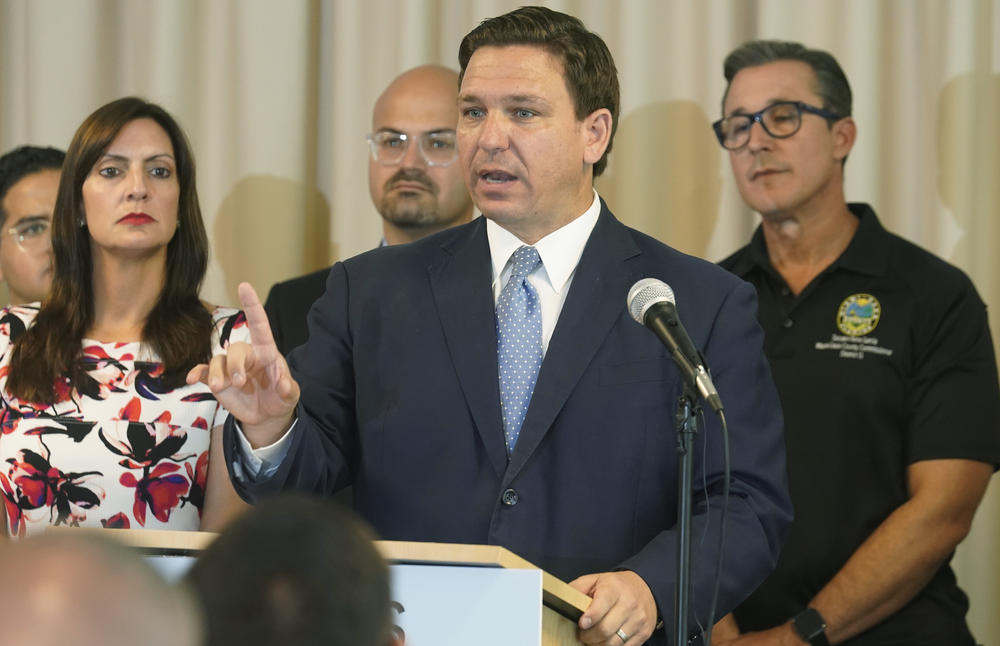Section Branding
Header Content
Florida Gov. DeSantis Expands Monoclonal Antibody Treatments Amid COVID-19 Spike
Primary Content
Florida is rolling out a mobile unit to administer monoclonal antibody treatments to coronavirus patients, Gov. Ron DeSantis announced.
Officials are expanding the availability of the treatments, which have emergency use authorization from the Food and Drug Administration, as a record number of new coronavirus infections is straining Florida's health care system.
"There's clear benefits to this early treatment for keeping people out of the hospital and reducing mortality," DeSantis said during a Thursday news conference.
Monoclonal antibodies — which hold the coronavirus in check by mimicking the body's natural immune defenses — can be used to treat people with mild to moderate COVID-19 who are 12 years of age or older. But the treatment doesn't work for those who've already developed more severe symptoms or are hospitalized.
Both vaccinated and unvaccinated people who are infected can receive the treatments, officials said.
Former President Donald Trump received Regeneron's monoclonal antibody treatment when he contracted coronavirus last fall.
But some states have struggled to make the treatment widely available since it is administered by an intravenous infusion that can take up to an hour and requires medical staff that may already be overworked.
While announcing the new rollout, DeSantis noted that monoclonal antibody treatments may not be as well-known in the battle against COVID-19 because they received emergency authorization around the same time that the Pfizer and Moderna vaccines also did.
Florida is looking to offer monoclonal antibody treatments at other locations throughout the state, and it will send "strike teams" into long-term care facilities to offer the treatment to older residents and others where they live.
The state has become a hot spot for new COVID-19 cases in recent weeks as the highly contagious delta variant has caused transmission rates to explode.
Still, DeSantis has resisted forcing students, many of whom are under age 12 and ineligible for the vaccine, to wear masks during the upcoming school year. He has threatened to withhold funding from any school districts that don't let parents choose whether their children wear masks, though several counties have ignored the threat and kept their mask mandates or imposed new requirements.
Copyright 2021 NPR. To see more, visit https://www.npr.org.

